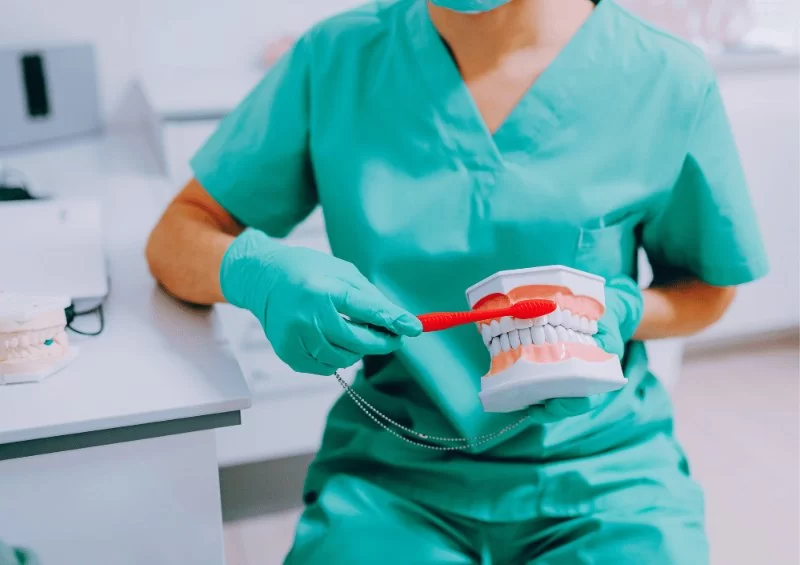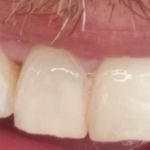
Why Oral Hygiene Practices Matter in Everyday Health
Oral hygiene goes far beyond brushing twice a day—it is deeply connected to overall health. When a nurse is reviewing oral hygiene practices, they are not just checking if teeth are clean. They also look for signs of gum disease, bad breath, and even conditions that may point to larger health issues, such as diabetes or heart problems. In the United States, millions of people experience tooth decay and gum issues each year, often due to neglecting proper oral care. Nurses play a vital role in patient education, guiding individuals to adopt better routines that protect their teeth and prevent serious health complications.
The Role of a Nurse in Reviewing Oral Hygiene Practices
Nurses often encounter patients in hospitals, clinics, and long-term care facilities where oral hygiene can be overlooked. When a nurse reviews oral hygiene practices, they examine whether patients understand how to brush, floss, and maintain proper care. For example, in a nursing home, staff may observe if residents are assisted in brushing twice daily or if dentures are cleaned correctly. A nurse’s review ensures that oral hygiene does not become secondary to other treatments. By identifying gaps in knowledge or practice, nurses help patients improve their daily habits and prevent painful or costly dental problems in the future.
Essential Daily Oral Care Practices Nurses Emphasize
According to oral health experts, there are several core practices that every nurse highlights during a review. Brushing for at least two minutes twice daily with fluoride toothpaste is fundamental. Flossing once a day removes plaque between teeth where brushes cannot reach. Rinsing with antimicrobial mouthwash can reduce bacteria and freshen breath. Nurses also stress the importance of replacing toothbrushes every three to four months and avoiding overbrushing, which can damage gums. These recommendations may sound simple, but consistent application makes the difference between strong, healthy teeth and recurring cavities or gum disease.
Oral Hygiene in Special Populations
When a nurse is reviewing oral hygiene practices, special attention is given to populations that face unique challenges. For example, children often require parental supervision to ensure thorough brushing. Adults with limited dexterity, such as those with arthritis, may need adaptive tools like electric toothbrushes or floss holders. Elderly individuals wearing dentures must be reminded to clean them daily and allow gums to rest overnight. In hospitals, patients who are bedridden may need assistance from staff to prevent complications like aspiration pneumonia caused by poor oral hygiene. Nurses tailor their advice to meet the needs of each group, ensuring that oral care is accessible to everyone.
The Connection Between Oral Hygiene and Systemic Health
One of the most important lessons nurses share is that oral hygiene impacts more than just the mouth. Research shows that gum disease is linked to cardiovascular issues, stroke, and diabetes. A nurse may explain to a patient that neglecting brushing and flossing can lead to inflammation in the gums, which spreads bacteria into the bloodstream. For example, a middle-aged man with untreated gum disease might also struggle with high blood pressure, and his nurse could emphasize how better oral care contributes to managing both conditions. This holistic approach helps patients understand why oral hygiene must be taken seriously as part of total health care.
Real-Life Example: How Oral Care Changed a Patient’s Life
Consider the story of Sarah, a 45-year-old office worker who often skipped flossing and brushed only once per day. During a routine health review, her nurse noticed signs of gum inflammation and bleeding. After receiving detailed guidance, Sarah committed to brushing twice daily, flossing nightly, and scheduling regular dental checkups. Within months, her gums were healthier, and she reported fewer headaches and improved energy. Stories like Sarah’s highlight how a nurse reviewing oral hygiene practices can be a turning point for patients, showing them the direct benefits of improved routines.
Best Practices for Maintaining Oral Hygiene Long-Term
Nurses do not just review oral hygiene for the moment—they help patients build habits that last. Long-term oral care includes regular dental visits every six months, limiting sugary foods and drinks, and drinking water throughout the day to rinse away bacteria. Nurses also encourage patients to look out for warning signs such as bleeding gums, persistent bad breath, or tooth sensitivity, which may require immediate dental attention. Building these habits early ensures fewer complications later in life. For those seeking professional advice, websites like Family Dentistry Online offer guidance and resources to find the right services for individual needs.
How Nurses Support Patient Education in Oral Hygiene
Education is at the core of a nurse’s role in reviewing oral hygiene practices. Nurses use visual demonstrations, such as showing the proper angle of toothbrush bristles or guiding patients on how to use floss effectively. They may also provide written guides or recommend digital resources for continued learning. In community health programs, nurses often hold workshops to educate children and parents about the importance of oral care. This outreach ensures that good habits are built early and maintained across generations. By taking the time to educate, nurses empower patients to take control of their oral health with confidence.







 Maui Whitening Orlando4.0 (32 review)
Maui Whitening Orlando4.0 (32 review) Bloomington Southside Dental Care3.0 (26 review)
Bloomington Southside Dental Care3.0 (26 review) Christiana Dental Center4.0 (650 review)
Christiana Dental Center4.0 (650 review) Carolina Dental Arts - New Bern Ave4.0 (152 review)
Carolina Dental Arts - New Bern Ave4.0 (152 review) Equitas Health Short North Medical Center3.0 (96 review)
Equitas Health Short North Medical Center3.0 (96 review) Prosthodontics of Madison - Kendra Schaefer, DMD & Christine Roenitz, DMD4.0 (25 review)
Prosthodontics of Madison - Kendra Schaefer, DMD & Christine Roenitz, DMD4.0 (25 review) The Importance of Oral Health Education During Pregnancy for a Healthy Pregnancy
The Importance of Oral Health Education During Pregnancy for a Healthy Pregnancy Best Tips for Brushing Your Teeth Properly for Healthy Gums: Essential Techniques for Oral Health
Best Tips for Brushing Your Teeth Properly for Healthy Gums: Essential Techniques for Oral Health Why Skipping Dental Checkups Can Lead to Bigger Oral Health Problems
Why Skipping Dental Checkups Can Lead to Bigger Oral Health Problems Advantages of Porcelain Dental Restorations
Advantages of Porcelain Dental Restorations How Can Diabetes Cause Tooth and Gum Problems? Preventing and Managing Oral Health Issues
How Can Diabetes Cause Tooth and Gum Problems? Preventing and Managing Oral Health Issues Healthy Habits for Promoting Good Oral Health and Hygiene: Tips for a Healthy Smile
Healthy Habits for Promoting Good Oral Health and Hygiene: Tips for a Healthy Smile